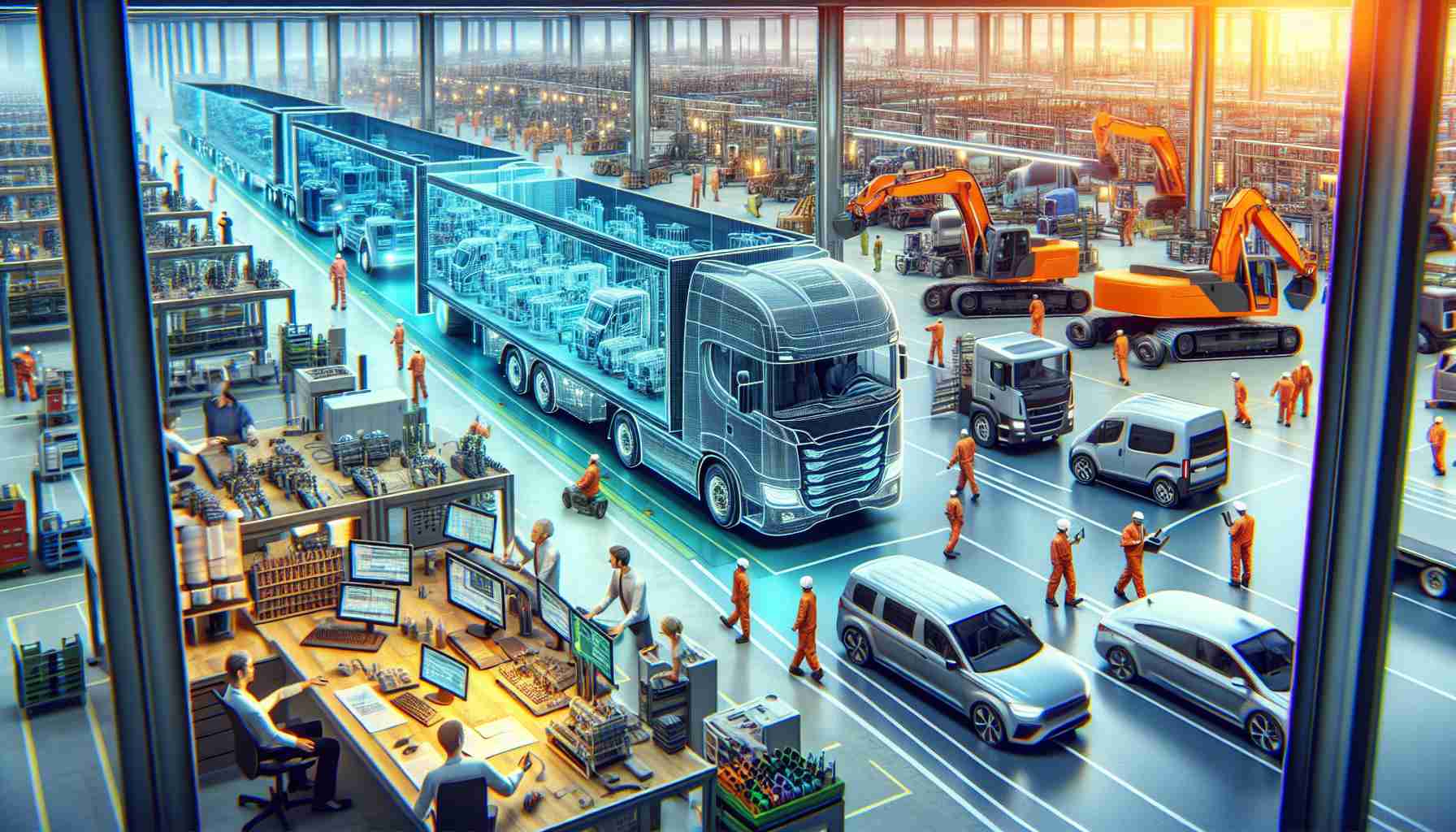Exploring the Future of Electric Trucks
The electric truck market is poised for remarkable growth, projected to escalate from USD 4.68 billion in 2023 to USD 12.13 billion by 2030, reflecting an astonishing CAGR of 25.64% throughout the forecast period. This surge is driven by advancements in technology and increasing demand for sustainable transportation solutions.
Key regions leading this transformation include North America, Europe, and Asia-Pacific, which are segmented for a detailed analysis in recent market reports. These reports provide insights into several critical areas: the evolving investment landscape, principal market drivers, and emerging trends in manufacturing.
A variety of electric truck propulsion methods and configurations, such as battery electric and fuel cell vehicles, cater to diverse market segments, including light-duty, medium-duty, and heavy-duty trucks. Noteworthy manufacturers like Daimler AG, Tesla Inc., and BYD Company Ltd. are pivotal players, continuing to innovate and capture market share.
Recent developments signal a shift towards greener mobility solutions. In September 2023, Volvo Autonomous Solutions partnered with Boliden to integrate autonomous transportation into Swedish operations, showcasing a fusion of technology and sustainability. Similarly, Tata Motors made significant strides by delivering the first Fuel Cell Electric Vehicles (FCEVs) to Indian Oil Corporation, marking a major step in India’s eco-friendly transport initiative.
As the market for electric trucks accelerates, stakeholders are keenly watching these advancements and their implications for the future of transportation.
Revving Up for Change: The Transformative Impact of Electric Trucks
Exploring the Future of Electric Trucks
The electric truck market is on the brink of a significant boom, with projections indicating an increase from USD 4.68 billion in 2023 to USD 12.13 billion by 2030. This rapid growth reflects an impressive CAGR of 25.64% over the forecast period, spurred by technological advancements and a growing demand for sustainable transportation solutions.
Market Trends and Insights
Several emerging trends are shaping the electric truck landscape:
– Investment Surge: Increased investments from both private and public sectors are vital for developing the charging infrastructure necessary to support electric trucks.
– Technological Innovations: Advances in battery technology, particularly in energy density and charging speed, are addressing one of the main challenges of electric trucks: range anxiety.
– Consumer Demand for Sustainability: Heightened awareness of environmental issues is leading fleet operators to favor electric trucks, aligning with corporate sustainability goals.
Key Players and Their Innovations
Prominent manufacturers driving the electric truck revolution include:
– Daimler AG: Known for its pioneering work in both battery electric and fuel cell technologies, Daimler is expanding its electric portfolio to meet diverse market needs.
– Tesla Inc.: Tesla’s heavy-duty electric truck, the Tesla Semi, aims to redefine freight transport with its innovative features and sustainability focus.
– BYD Company Ltd.: As a leader in electric vehicles, BYD is producing a range of electric trucks suitable for various commercial applications.
Regional Dynamics
The three main regions impacting the market are:
– North America: Enforced regulations and a strong push towards electric fleet adoption are driving growth.
– Europe: Stricter emissions regulations and support for green technologies foster a conducive environment for electric truck markets.
– Asia-Pacific: Countries like China and India are heavily investing in electric vehicle infrastructure and production, especially in relation to logistics and supply chain advancements.
Use Cases of Electric Trucks
Electric trucks are particularly well-suited for:
– Urban Deliveries: Their lower emissions and noise profile are ideal for city environments.
– Construction Sites: Electric trucks can reduce local air pollution while maintaining operational efficiency.
– Agricultural Applications: These vehicles are becoming integral to modern, sustainable farming practices.
Security Aspects and Sustainability
As electric trucks are implemented, security and sustainability are paramount:
– Data Security: Electric trucks often integrate IoT technologies for real-time tracking and efficiency. Safeguarding this data against cyber threats is crucial.
– Sustainable Materials: The industry is moving towards using recyclable and environmentally friendly materials in manufacturing electric trucks, further reducing the ecological footprint.
Challenges and Limitations
Despite their potential, the deployment of electric trucks faces obstacles:
– Charging Infrastructure Shortage: A widespread and accessible charging network is essential for the successful adoption of electric trucks.
– Battery Lifecycle Management: Addressing the environmental impact of battery production and disposal is crucial as electric truck usage increases.
Predictions for the Future
Looking ahead, the electric truck market is expected to reach new heights with innovations in:
– Autonomous Driving Features: The integration of AI and machine learning in electric trucks will enhance safety and efficiency.
– Hydrogen Fuel Cells: The development of hydrogen fuel cell technology presents an alternative for long-haul trucking, potentially overcoming many limitations of battery electric vehicles.
Pricing and Market Analysis
As the technology matures, the cost of electric trucks is projected to decline, making them more accessible to average consumers and businesses alike. Market analysts indicate that by 2025, electric trucks could reach price parity with traditional diesel trucks, catalyzing a broader shift to electric solutions.
As the electric truck market accelerates, stakeholders are closely monitoring advancements and their implications for the future of transportation. Learn more about electric vehicles and their impact on modern logistics at Electric Vehicle Info.












